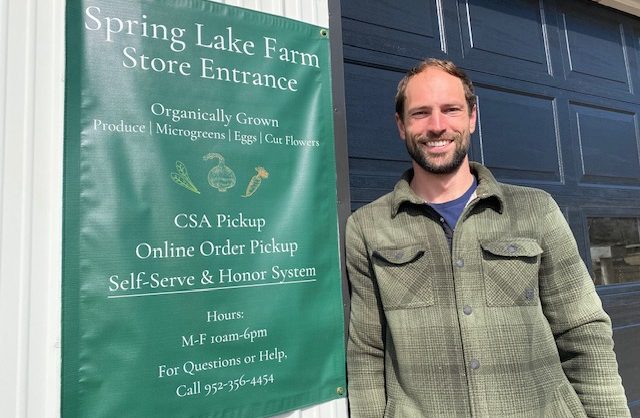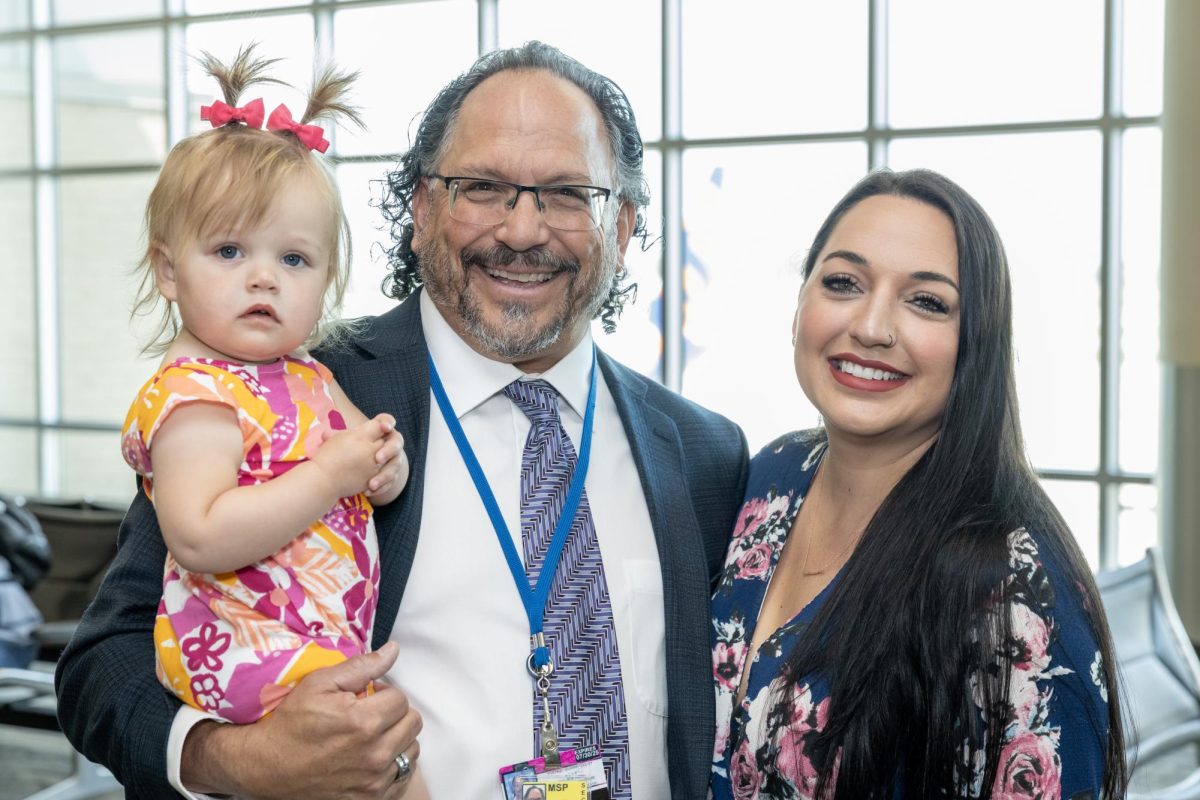Matt Arends is an environmentalist and entrepreneur, but he is best known for taking a small garden plot of land and within a short time, turning it into a thriving business committed to organic growing practices.
Arends operates Spring Lake Farm located on the edge of Prior Lake off Panama Avenue, and his client base of local residents looking for healthy food choices has grown dramatically in a short time. The farm is located next to Queen Beez, which is owned by Crystal Wohler and specializes in decorative fresh plants and flowers. The two were correct in assuming their respective businesses would complement each other in drawing similar clientele.
Now in its fourth full growing season, the farm specializes in regenerative, organic growing practices through which a wide assortment of fruits and vegetables are grown, harvested and sold locally throughout much of the year. Business grew so rapidly, Arends purchased additional acreage south of Prior Lake last year and is in the process of constructing three new greenhouses while preparing for the 2025 planting season.

He returned to Prior Lake in 2021 at the height of the COVID-19 pandemic. After studying international affairs at Princeton University, his career path led him to working at various organizations in Europe, Tanzania and both coasts of the U.S. His experiences living abroad allowed him to compare traditional foods and norms. Arends found those living in Europe usually buy small quantities of groceries throughout the week, which allowed them to regularly eat fresh foods rather than those that are canned and preserved with chemicals.
“The quality of food is so much better there,” Arends said. “I felt significantly better because I had access to fresh food all of the time.”
He said much of the acreage throughout the metropolitan area that was formerly used for growing crops has been sold in recent years to housing developers, thus reducing fresh food production. Arends readily admits the Midwest’s shorter growing seasons has always and will continue to hamper accessibility to fresh foods throughout the year.
He has, however, come up with a solution for the latter. Arends installed perforated tiling systems in his greenhouses which enable solar energy to be pumped via fan throughout the structures, keeping temperatures around 60 degrees Fahrenheit, even during the winter months. This allowed for many of the products grown to be sold through the holiday season. Planting of starter plants began in March, so spinach, cilantro and microgreens are already available for purchase at the farm’s store. Product lines will be expanded in the coming months to include granola, wild rice, wellness products and healthy beverages.
The variety of fruits and vegetables grown and sold continues to increase throughout the summer months. In addition to produce sold at the farm, Spring Lake Farm is also a regular vendor at the Prior Lake Farmer’s Market.

Arends adds that he uses regenerative, organic farming practices that focus on crop rotation, composting and maintaining healthy soil to retain water and healthy nutrients. He has also sourced meats and cheeses from area establishments to sell at the farm store.
An area of tremendous growth for Spring Lake Farm has also been the introduction of “farm-to-table” dinners for up to 30 guests, and approximately 20 such events have been booked for later this year. Participants gather in one of the greenhouses and the menu includes items harvested locally, meat from area farms and sometimes wine produced by an area vineyard. Dinners scheduled for the upcoming summer months have already sold out.
“We’ve grown way faster than ever expected,” Arends said, adding that he has gotten better in recent years calling it quits for the day once it reaches 7 p.m. “The summer months are really busy. The demand has just shot up.”
He acknowledges benefitting from the changes in food preferences between generations. He believes those who are older grew up with meals centered around meat and potatoes. The younger generation oftentimes prefers vegetable-based meals. He believes those trends will continue and become even more prevalent in the future.
“I’m really passionate about creating a healthy community, as much as I can,” Arends said. “We’ve created a space where kids and parents can learn from the farm. We’re always open to people visiting and experiencing it.”






